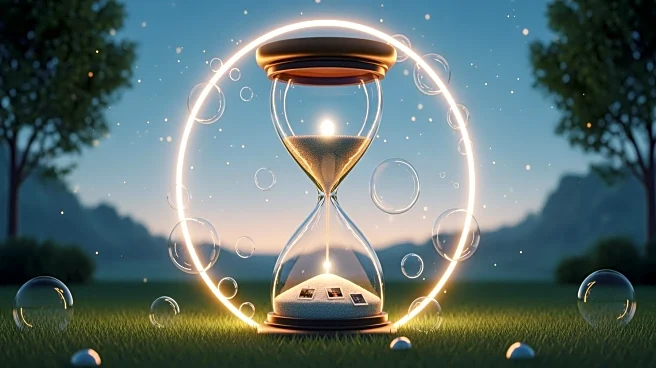What's Happening?
A study conducted by neuroscientists at Anglia Ruskin University has discovered that experiencing an illusion of owning a younger version of one's face can enhance the recall of childhood memories. The research involved participants viewing a digitally
altered version of their face to appear childlike, which significantly improved their ability to recall episodic details from their childhood. This study highlights the connection between bodily perception and autobiographical memory, suggesting that reintroducing body-related cues from the past can aid in memory retrieval.
Why It's Important?
This research offers new insights into the relationship between self-perception and memory, with potential applications for improving memory recall in individuals with memory impairments. By demonstrating that bodily illusions can enhance memory retrieval, the study opens up possibilities for developing therapeutic interventions for memory-related conditions. This finding also contributes to the broader understanding of how our physical self influences cognitive processes and memory formation.
What's Next?
Future research could explore more sophisticated body illusions and their potential to unlock memories from different life stages, including early infancy. Additionally, the study suggests the possibility of using personalized digital renderings to strengthen the effect of these illusions. Such advancements could lead to new techniques for aiding memory recall in clinical settings, benefiting individuals with memory impairments.














